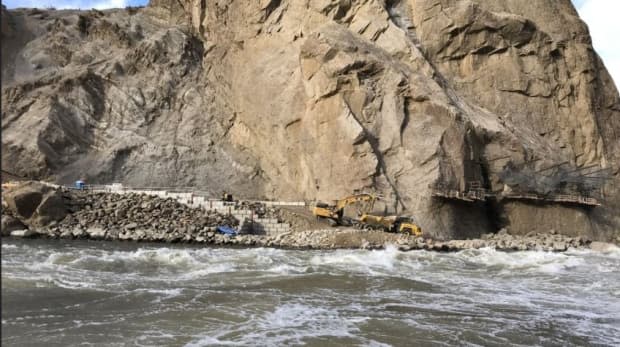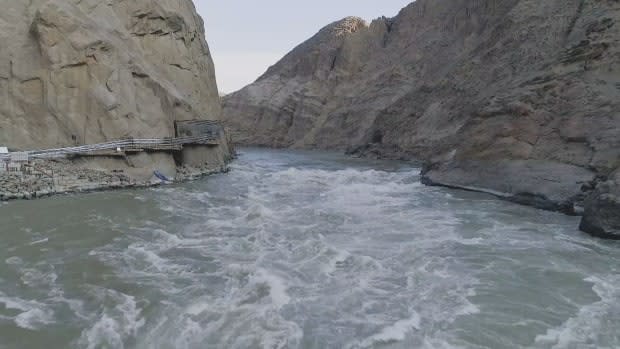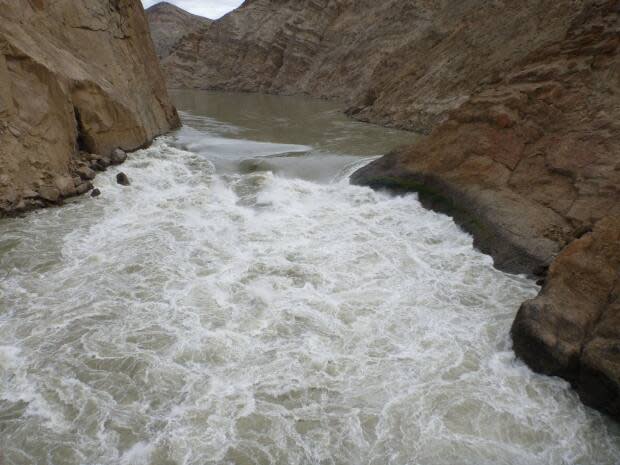Wildfires, floods and rock slides force pause on permanent fishway project at Big Bar landslide site

Efforts to create a permanent safe passage for fish at the Big Bar landslide site are being delayed as a number of incidents have made work challenging and in some cases, dangerous for crews.
Originally, the federal government estimated a $176 million permanent fishway would be completed by May 2022, but now, officials say that timeline is "no longer possible" and further costs are unknown.
The slide is believed to have happened on Nov. 1, 2018, but wasn't detected until late in June 2019 because of the remote location.
Since it was discovered, work to clean up the site has been ongoing and managed by the Department of Fisheries and Oceans, province of B.C. and local First Nations.
Trials and tribulations
This summer, the worksite has been surrounded by wildfires, including the McKay Creek wildfire, which project director Gwil Roberts says came within 7.5 kilometres of the work camp. Crews were forced to evacuate the site twice over the past month.
The Churn Creek fire, and fires to the northeast and southeast of the worksite also created chaos for transportation routes in and out of the area.

Flooding, which Roberts says has been an issue in the past, was made worse this year by the heat dome that blanketed Western Canada.
A series of unforeseen rock falls earlier this year posed serious risk to crews.
"We saw a level of activity on the slope that should happen once in every 25 years," Roberts said. "It happened in six weeks."
Roberts says the slope condition is unpredictable in several areas and requires better rock fall protection.
For those reasons, further work on the permanent fishway was paused and the contractor shifted efforts to other planned work.
The work camp will be decommissioned but may be rebuilt in the future.

Official say an immediate review was done of the slope stability and a plan for next steps is underway, because the intended goal of spring 2022 is not going to work out. They say completion of the structure and cost of construction can no longer be adequately estimated as site conditions continue to evolve.
Now, a structured analysis is underway. Roberts said agencies will work on a report over the next six to nine months and hopes to have a solution within the next year.
"We are committed to ensuring sustainable long term passage at Big Bar," Roberts said. "But how we do it may change."
It's unclear exactly how long the overall project may be delayed.
Fish can get through
In the meantime, more than 79,000 salmon have been detected 40 kilometres upstream from the slide site, and sonar systems haven't observed any delay in salmon migration.

Earlier this year, officials said they were seeing signs of success in their efforts to help salmon that were impacted by the slide. In particular, a man-made, nature-like fishway was widened to give salmon a route past the slide, increasing the number of fish that could swim through to their spawning grounds.
"We have passage this year, so that's a tremendously good sign," Roberts said.
As the water lowers over the next five months, Roberts said they'll be better able to understand the effectiveness of the nature-like fishway.
